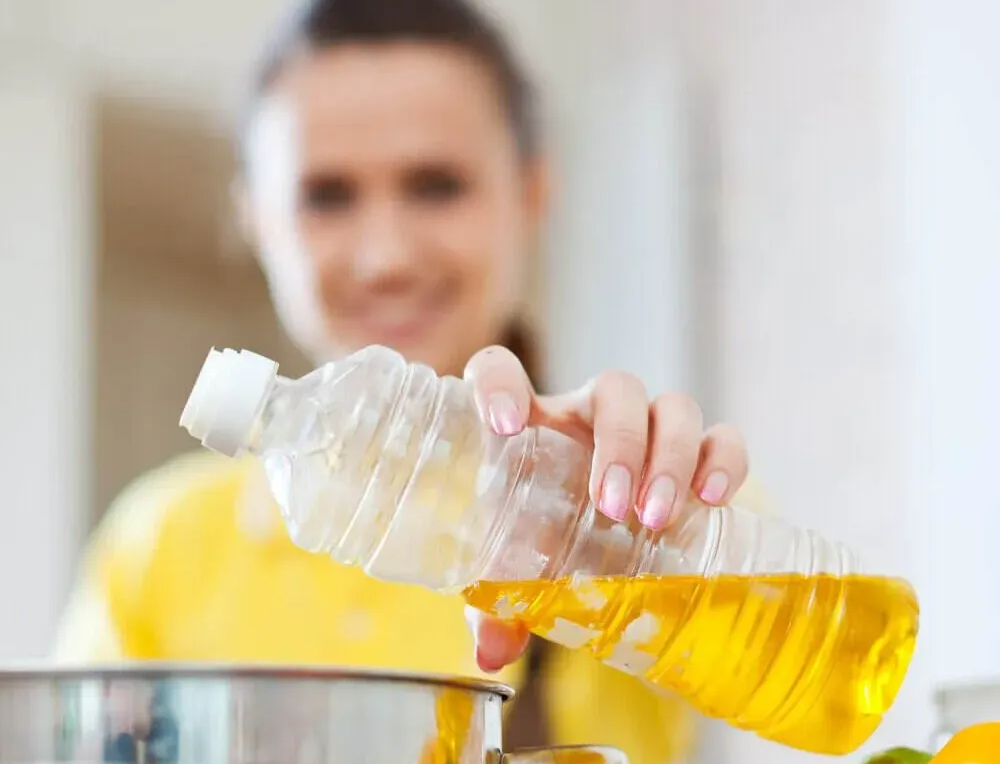How to Dispose of Used Cooking Oil at Home
Disposing Cooking Oil? How...
When you finish cooking a large meal, you might be tempted to wash any fat, oil, and grease remaining in your pots or pans down the drain. However, unless you want to call the plumber to fix your clogged pipes, be sure
not to pour oil and grease down the drain or toilet.
Even if you are fortunate—and the grease and oil escape your drain, other materials will likely clump together with the grease and oil. These materials form large, solid masses called “fatbergs” that clog the sewer system. The city will need to use its resources to remove these blockages, which is likely to increase your water and sewage bill.
What should you do with oil and grease instead? You can find many options for disposing of cooking oil and grease, some simple and others more creative. Be sure to consider the long-term consequences of the recycling or disposal method that you choose. Keeping oil, grease, and fat out of our sewer system makes life better for everyone. Be sure to check with your municipality to find out its recommendations for disposal.
Some Oil and Grease Disposal Tips in Ontario
Let It Solidify and Throw It Out (in the Right Place)
One method is to let the grease or oil cool in a container. As it cools, the oil will thicken and become easier to handle. Once the oil is no longer liquid, you can throw it in the green bin that Ontario uses to collect organic waste. Based on a report from CTV, residents can use the green bin for bacon grease disposal.
According to the waste collection bylaws of Dufferin County in Ontario, only private residences should put out congealed cooking oil or grease for waste collection. If you are cooking at home, you might be able to put the solidified oil in the trash—however, that is not the best option.
Sustainability management company
GreenCitizen suggests mixing cooking oil or grease with substances like cat litter or sawdust. Many sources also recommend using a paper towel or other absorbent material to sop up small amounts of fat.
If you have a large amount of waste, you can take it to a drop-off location in your area. Before you go, check the Toronto website to find your nearest drop-off location, learn about any COVID restrictions or other rules, and make sure the site is open.
Trap It
Commercial products like The Fat Trapper and Range Kleen come with bags that you can use to dispose of cooking oil and grease easily. These bags prevent oil, grease, and odours from escaping. One downside to this approach is that you will need to buy new bags periodically. Fat-trapping products are not a permanent solution since the bag will most likely break over time. When you use these types of bags, the oil and grease will eventually end up in the landfill.
Reuse It
You can also save cooking oil and reuse it for cooking or deep frying. If you choose to reuse the oil, strain it through a fine mesh, such as cheesecloth. Straining the oil will remove bits of food and other impurities from the oil.
If you are reusing oil for cooking or frying, you might be able to recycle the same oil multiple times. The exact number of times you can cook with the same oil depends on where the fat comes from. For example,
America’s Test Kitchen found that you can reuse oil from fried chicken four times, while you can reprocess oil from potato chips eight times. Check the oil’s colour and odour before reusing it again.
Use Cooking Oil for Household Tasks
According to Mahoney Environmental, a cooking oil recycling company, you can use cooking oil as a lubricant for locks, squeaky gates, and other household items. Cooking oil can also polish and preserve some materials, such as leather.
However, use caution when using cooking oils instead of commercial lubricants or polishes. Lingering oil or other impurities could leave odours behind or potentially cause damage. Do not use oil on anything of value. This rule will prevent your belongings from inadvertent damage.
Make a Vegetable Oil Lamp
If you are handy and looking for an environmentally friendly way to decorate your home, making a vegetable oil lamp is a practical way to create an old-fashioned ambience with your used cooking oil. For ideas, you can watch online tutorials on how to make a lamp. As with any lamp or heater that burns organic material, be careful that the oil lamp does not tip over or break. Also, please keep it away from flammable materials, such as curtains.
Create Biofuel
If you have a knack for chemistry and tend to generate large amounts of cooking oil, you could use it to make biodiesel fuel. This process requires using toxic chemicals, such as lye, and is somewhat involved, so it is probably not the best way to deal with the oil or grease from only one night of cooking.
Can You Use Cooking Oil or Grease for Composting?
Grease and oil are organic materials, so it might seem logical to think that they could naturally biodegrade in a compost heap. A minimal amount might not hurt, but in general, putting oil or grease in compost is not a good idea. These materials slow down the composting process, which can kill the plants rather than nourish them.
What Should I Do If I’ve Already Dumped Oil or Grease Down My Drain?
First of all, don’t panic. Grease and oil can be hard to remove from pipes. Some DIY methods, such as pouring boiling water or a combination of baking soda and vinegar down the drain, can help reduce build-up in your pipes.
However, these home remedies do not always work. To be certain that you have cleaned your drain and pipes thoroughly, call a professional plumber, like Plumbs Up Plumbing and Drains in Orangeville, Ontario. At Plumbs Up, we can send an experienced plumber out to snake your drain and remove the clog if you live in East Luther Grand Valley, Orangeville, Richmond Hill, Innisfil, Caledon, or Newmarket.
At Plumbs Up Plumbing and Drains, we’ve seen all sorts of kitchen and bathroom misadventures. Our team will get your sink, toilet, or bathtub draining properly in no time.
When you need a plumber in Orangeville, ON, who has seen everything and knows just how to fix your plumbing issues, be sure to call us at Plumbs Up at 1-888-627-0788.
At Plumbs Up, a leading Orangeville plumbing company, we provide solutions to help you live a comfortable, happier, and healthier life! So, give us a call at 1-888-627-0788 today.
OUR SERVICES
CONTACT INFORMATION
Plumbs Up Plumbing & Drains
Address: 32 St Pauls Place, Orangeville, ON L9W 0A3
Phone: 1-888-627-0788
Office Hours:
Mon-Fri: 07:00 AM to 08:00 PM
Sat: 09:00 AM to 05:00 PM
Sun: Closed
Emergency Service available upon request.
All Rights Reserved | Plumbs Up Plumbing & Drain



